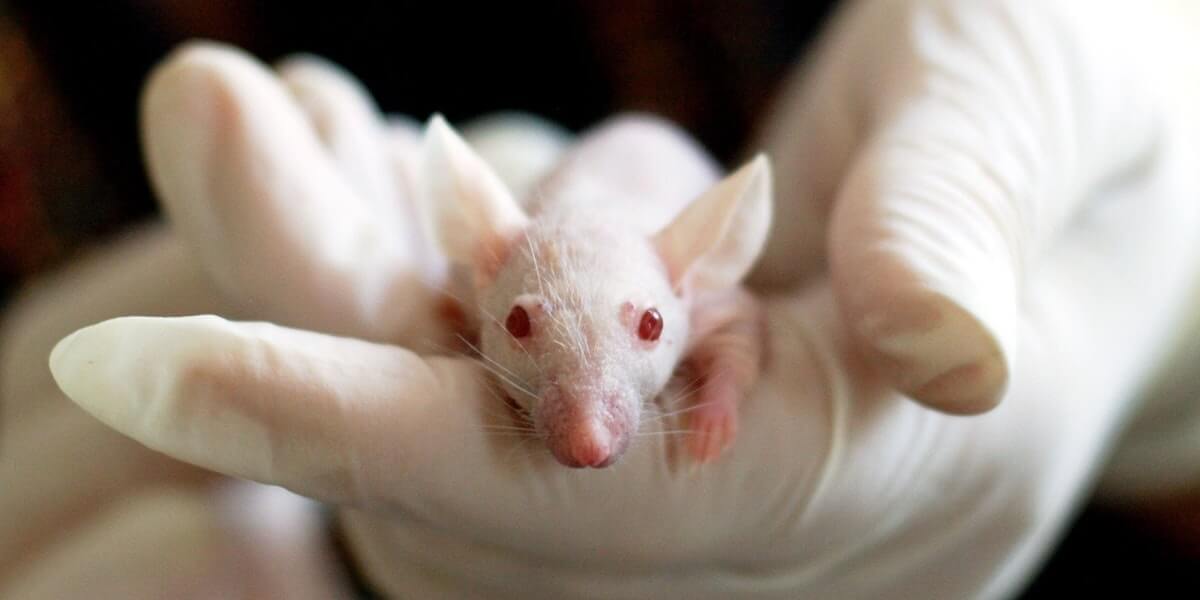A Mouse Burst Into Flames, More Animals Died Agonizingly in NIH
Monkeys were left without water for days on end, animals weren’t given proper pain relief before or after surgery, and a mouse actually burst into flames—these are some of the grotesque animal welfare violations in National Institutes of Health (NIH) laboratories that PETA has recently uncovered.
You read that right: A mouse. Burst. Into. Flames.

PETA unearthed a slew of federal case files documenting mountains of unimaginable suffering and death at the hands of NIH experimenters whose casual relationship with compassion is eclipsed only by their abounding negligence. The latest violations follow in the wake of similarly horrific violations that we exposed previously.
PETA is now calling for the resignation of NIH’s top boss, Director Francis Collins, whose ineffective oversight is laid bare in the files.
In all, the federal reports document 34 cases of serious animal welfare violations in the government laboratories at NIH for the period from March 2020 to June 2021. They include the following:
- Inattentive staff failed to notice a disconnected water line, and four monkeys went without water for three days. The monkeys’ dehydration was so severe that fluids had to be administered intravenously.
- In 10 separate incidents, experimenters failed to ensure that mice had access to food or water—resulting in animals’ deaths by starvation or dehydration. In one incident, three infant mice died from a combination of hypothermia and dehydration when a leaking water bottle soaked the bedding in the cage and no one noticed. In another incident, a mouse who had been left without water was observed to be “hunched, lethargic, and with an ocular concern.” The mouse was euthanized.
- A 6-year-old female monkey asphyxiated while under anesthesia, because experimenters failed to notice a disconnected oxygen tank.
- A male monkey required “extensive” surgery to his left arm, left leg, and back after experimenters put him in a cage with an incompatible monkey and the two fought.
- A monkey endured two surgeries instead of one when an inattentive experimenter performed the same surgery a week after the first.
- A 3-day-old guinea pig died on impact after falling through a cage opening.
- A mouse burst into flames when staff failed to notice that alcohol fumes had built up during electrocautery surgery—a procedure that uses heat from an electric current—and ignited the animal’s body. The mouse was euthanized.
- NIH experimenters failed to provide animals with appropriate postoperative pain relief. In one incident, 142 mice were given expired pain medications after surgery. In another, 75 mice subjected to embryo transfer surgery were given no postoperative pain relief. In yet another, 15 monkeys were given an expired pain medication following their use in an unspecified procedure.
- An 18-year-old rhesus macaque who had been anesthetized for a tooth extraction sustained an extensive burn—2 inches by 3 inches and half an inch deep—to his abdomen when an experimenter had placed a gel pack intended for heating support directly on his skin, rather than wrapping the pack first as required. Two days later, a lesion developed on the monkey’s abdomen.
And these are on top of the NIH violations that we reported last year.
Your tax dollars pay for this bumbling callousness. NIH spends nearly half its annual budget on cruel and worthless animal experiments. In essence, the agency flushes more than $19 billion down the drain every year, because studies have shown that 90% of basic research—most of which involves experiments on animals—fails to lead to treatments for humans. NIH’s sailor-on-shore-leave spending is entirely untenable, and the suffering and death—both intentional and through its documented ineptitude—that it buys is wholly unconscionable.
Before he resigns, Collins could show some real leadership by putting an end to NIH’s fiscal waste and ending its needless and painful animal testing, beginning with the horrific monkey experiments of Elisabeth Murray.

